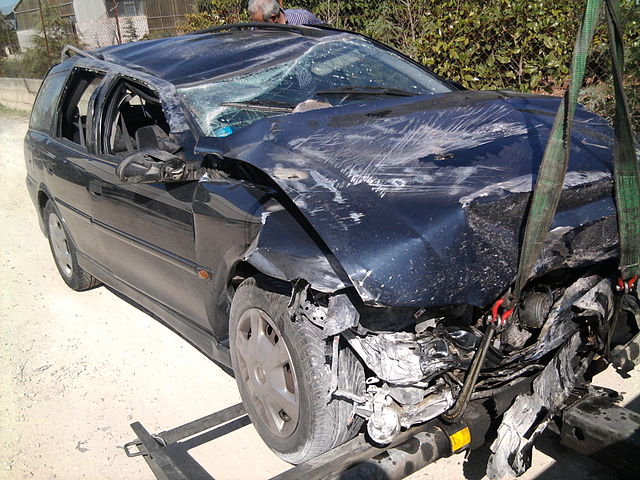
An ambulance is generally dispatched when the authorities are notified of a car crash. We’re all keenly aware of how vehicle collisions can result in serious injuries that may impair a person for life.
Not every injury from a car or truck crash ends with someone being rushed to the hospital in an ambulance, though. More than 3 million injuries result from vehicle incidents every year, according to the National Highway Traffic Safety Administration (NHTSA), but many of them can be treated in a walk-in clinic or by a family doctor.
The unsettling fact of the matter is that you might not notice you’ve been injured for a time. In some cases, the pain may not manifest for several days after the crash, or it could only slowly intensify over time.
Here are some of the most common vehicle injuries you should be aware of.
1. Neck Injuries
The neck is by far the most common part of the body that’s injured in collisions, so it’s often the focus of a complaint in personal injury cases. The neck is a vulnerable part of the body, and the blunt force of a collision at any speed can cause serious injury to your spinal cord and the muscles around it.
Whiplash is the kind of injury that may not become apparent right away. Your neck might not start to feel sore until a few days after the incident.
Injury to your neck can cause a variety of health and wellness problems, including headaches, stomach pain, herniated disks, and more, so it’s vital to stabilize your neck with a brace and anti-inflammatories if you’ve suffered a serious case of whiplash. It’s also crucial to take care of this type of injury as quickly as possible.
2. Sprains and Dislocations
Hips, knees, arms, shoulders, and other joints can be dislocated, or the muscles around them sprained during a vehicle collision. The risk for sprains and dislocation falls significantly if the passenger is sitting up straight in the seat with the seat belt properly fastened across one’s body.
Not all passengers ride this way, unfortunately. Crossed legs, a hunched posture, and other variations on a proper sitting posture can put your joints at increased risk for injury. Though a dislocated joint should be treated by a professional, most sprains can be cured with time.
3. Back Injuries
Although your neck is usually the most vulnerable section of your spine, your spine anywhere in your back and the muscles surrounding it can be easily injured in a car crash. Sudden impact at any speed can exert serious stress that has lasting consequences.
In most cases, a back injury will be minor, as the case of a strain or dislocated disc. However, more serious injuries are possible, and they can lead to chronic pain or loss of mobility. Serious back injuries should be addressed immediately following a car collision for the best chance of recovery.
4. Concussions
Your brain is a soft, loose organ inside your hard skull. When you hit your head very hard, such as on the steering wheel or dashboard in a car crash, your brain will rattle in your skull, which will bruise this tender organ.
In most cases, a concussion will heal in a few days, but a serious blow can cause permanent damage. A concussion usually turns up as a headache, dizziness, and sometimes vomiting.
It can also make you sleepy, but going to sleep when you’ve suffered a concussion is a very bad idea: You might not wake up. It’s critical to be seen by a medical professional right away, if you register any symptoms of concussion.
5. Anxiety and Depression
Even if you walk away from a car accident physically unscathed, you could still have mental injuries that may stay with you the rest of your life. Anxiety and depression as a result of an accident are not uncommon, as your body tries to cope with the terrifying events that have happened to you.
Prescription medications can help you cope with the symptoms of mental health disorders, but counseling is often the best remedy. Often, anxiety and depression after a vehicle collision will be situational and will disappear in time.
6. PTSD
In other cases, anxiety and depression can escalate into a condition known as Post-Traumatic Stress Disorder (PTSD). This is health condition common in those who have undergone a serious trauma.
It can be accompanied by nightmares, insomnia, an inability to face your fears, anxiety, and similar disturbances. PTSD is a serious mental health condition that demands professional care. Again, time can heal your mental wounds, but it entails proper treatment and patience.
7. Bruising
Bruising is a milder injury common to car collisions, but it can still be quite painful. Serious bruising can also leave an internal scar that’s visible through the skin.
Usually, bruises can be handled with an ice pack and anti-inflammatory, but in some cases, there might be bruising on your internal organs, which involves internal bleeding. If you’re experiencing severe pain anywhere inside your body, it’s vital to get checked as quickly as possible.